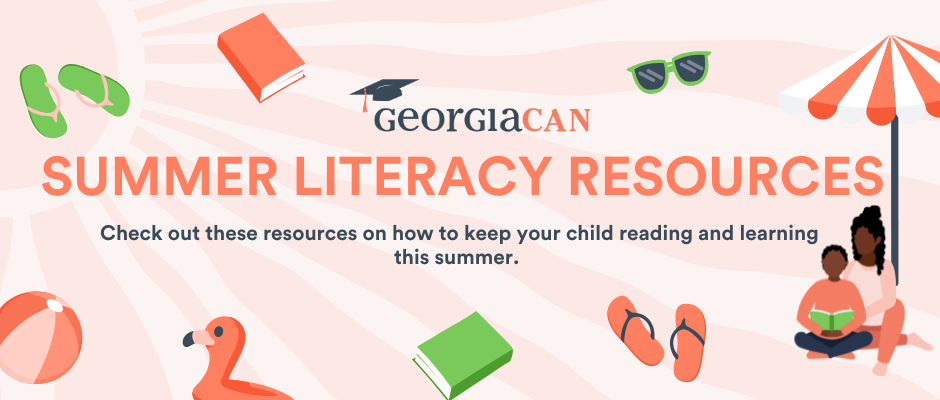Summer is just around the corner—and while it brings a well-earned break from school routines, it can also lead to the dreaded “summer slide.” This term refers to the learning loss that many students experience over the summer months, particularly in reading and language skills. But it doesn’t have to be that way.
To help families keep their children on track, GeorgiaCAN recently hosted an inspiring and practical conversation with two leading experts in literacy and language development:
- Elizabeth Hogan, President of The Reading League Georgia
- Jaumeiko Coleman, PhD, CCC-SLP, FNAP, Speech-Language Pathologist and Founder of The Learning T.I.P., LLC
Together, they shared strategies, insights, and resources that empower parents and caregivers to keep kids engaged and learning all summer long.
Watch the Webinar
If you missed it live, don’t worry, you can still access the full webinar. It’s packed with actionable tips and creative ideas to make summer learning fun and effective. Whether your child loves books or needs a little extra encouragement, there’s something in it for every family.
What Is the “Summer Slide”?
The “summer slide” refers to the tendency for students, especially those in early grades, to lose some of the academic gains they made during the school year over summer break. Without consistent reading and language engagement, kids can fall behind, making it harder to catch up when school resumes.
But the good news? It’s completely preventable.
How Can You Support Your Reader This Summer?
Supporting your child’s reading development doesn’t have to feel like homework. It starts with creating a home environment where reading is part of everyday life. Here’s how:
- Make reading visible – Keep books in every room and make reading a daily habit.
- Lead by example – Let your child see you reading newspapers, books, or magazines.
- Talk about books – Ask your child questions about what they’re reading and share your own reading experiences.
- Build a routine – Set aside 15–20 minutes each day for quiet reading or storytime.
- Celebrate progress – Recognize your child’s reading milestones, big or small.
What Are Some Fun & Effective Strategies You Can Use?
Learning sticks when it’s enjoyable! Try these simple and effective strategies to keep your child’s literacy skills sharp:
- Create a summer reading challenge – Use stickers, charts, or small rewards to make it exciting.
- Use audiobooks and podcasts – Great for car rides or downtime, they boost listening comprehension.
- Take library field trips – Let your child pick books that interest them and join summer programs.
- Play word games – Try Scrabble, Boggle, or rhyming games to build vocabulary and phonics skills.
- Incorporate storytelling – Encourage your child to make up stories or retell their favorite books.
- Label the world around them – Turn everyday moments into reading opportunities by labeling items at home in English and other languages.
Resources to Keep Kids Learning
To support families, we’ve gathered a collection of tools and activities designed to make summer reading both enjoyable and impactful. Whether it’s through storytelling, library visits, reading challenges, or conversation-rich play, small daily efforts can make a big difference.
Let’s work together to ensure that every child returns to school this fall stronger, more confident, and ready to succeed.
Reading Resources
Nessy Free Homeschool Resources
TRL Reading Buddies Show on YouTube
Florida Center for Reading Research Student Activities
Printable Letter Cards: (FCRR)
Language Resources
Birth – Preschool
Supporting Language and Literacy Skills from 0-12 Months
Supporting Language and Literacy Skills from 12-24 Months
PBS Kids for Parents: ABC Literacy
Elementary School
Suggestions for Parents: Speech and Language Development
PBS Kids for Parents: ABC Literacy
Middle School
Developmental Milestones for Middle-Schoolers
High School

